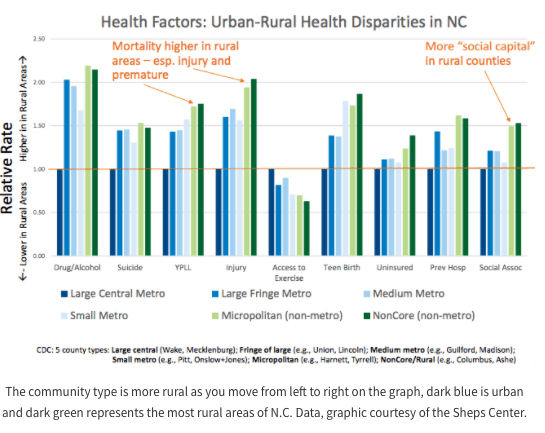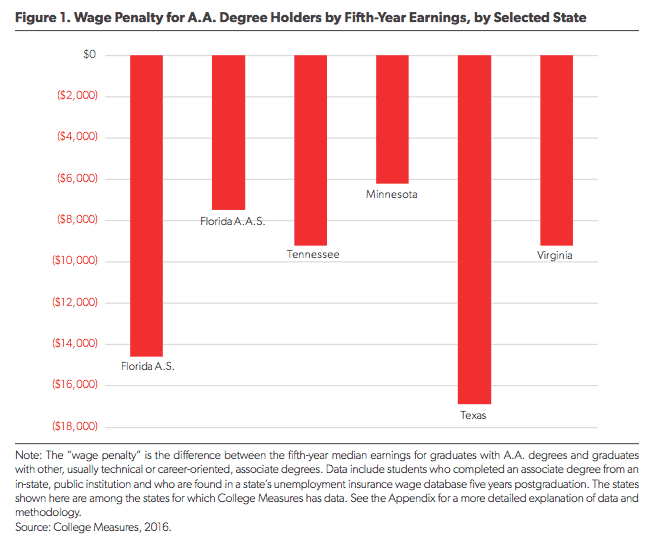For Your Consideration
North Carolina Health News released a report this week titled N.C. Rural Health by the Numbers. It is a relatively short read as far as reports go and has some interesting graphics. A few takeaways from the report:
- Rural populations in North Carolina have higher mortality rates, drug and alcohol use, suicide, years in productive life lost, injury, teen births, uninsured patients and preventable hospitalizations.
- 20 counties in North Carolina do not have a pediatrician, 26 counties do not have an OB-GYN, and 32 are without a psychiatrist.
- Rural areas have higher measures of social capital than metropolitan areas. In other words, they have powerful relationships with neighbors, faith communities, and other social associations.

Contextual Healing
Associate of arts (A.A.) degree holders earn significantly less than other technical or career-oriented associate degrees and rarely go on to complete bachelor degrees, according to a new report released this week by American Enterprise Institute. The graphic below shows the wage penalty for A.A. degree holders compared with technical or career-oriented associate degrees.

The report has several recommendations for how A.A. degrees can add marketable skills and align better with labor market needs, including:
- Embed skills into curricula , such as coding, management, and sales skills
- Offer “guided pathways” to bachelor’s degrees
- Provide students with information on student success, including wages, for A.A. degrees
The Next Evolution
Brookings released a report positioning the millennial generation as “a demographic bridge to America’s diverse future.” The report examines the demographic makeup of millennials, including race/ethnicity, language spoken at home, education level, marital status, homeowner status, and percent living in poverty.
Key takeaways for North Carolina:
- Minorities comprise more than 40 percent of millennial residents in North Carolina
- 31.9 percent of millennials in North Carolina are college graduates and 19.2 percent are living in poverty
- Percent of millennials in poverty: 16.3 in Charlotte, 17.2 in Greensboro-High Point, 15.1 in Raleigh, and 15.2 in Winston-Salem
What we're reading
Study: Corals Prefer the Taste of Plastic
Researchers at the Duke Marine Lab studying coral consumption of plastics have reason to believe that plastic may taste inherently attractive to coral, impacting the food chain including humans. ... Read the rest-
How talented kids from low-income families become America’s ‘Lost Einsteins’
-
Freelanced: The Rise Of The Contract Workforce
-
Schools can serve as an antidote to “truth decay”
-
How to Save a Town From Rising Waters
-
How the Data That Internet Companies Collect Can Be Used for the Public Good
-
Walmart and Now Starbucks: Why More Big Companies Are Offering Paid Family Leave


